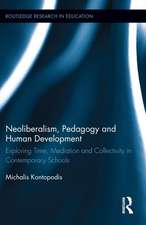The Changing Japanese Family: Routledge Contemporary Japan Series
Editat de Marcus Rebick, Ayumi Takenakaen Limba Engleză Paperback – 29 apr 2009
The authors investigate these changes and the effects of them on Japanese society, whilst also setting the study in the context of wider economic and social changes in Japan. They offer interesting comparisons with international societies, especially with Southern Europe, where similar changes to the family and its role are occuring. This fascinating text is essential reading for those with an enthusiasm in Japanese studies but will also engage those with a concern in Japanese culture and society, as well as appealing to a readership with a wider interest in the sociology of the family.
| Toate formatele și edițiile | Preț | Express |
|---|---|---|
| Paperback (1) | 344.58 lei 6-8 săpt. | |
| Taylor & Francis – 29 apr 2009 | 344.58 lei 6-8 săpt. | |
| Hardback (1) | 705.53 lei 6-8 săpt. | |
| Taylor & Francis – 3 mar 2006 | 705.53 lei 6-8 săpt. |
Din seria Routledge Contemporary Japan Series
-
 Preț: 311.18 lei
Preț: 311.18 lei - 8%
 Preț: 383.06 lei
Preț: 383.06 lei -
 Preț: 325.09 lei
Preț: 325.09 lei - 9%
 Preț: 934.96 lei
Preț: 934.96 lei -
 Preț: 348.51 lei
Preț: 348.51 lei -
 Preț: 340.61 lei
Preț: 340.61 lei -
 Preț: 327.41 lei
Preț: 327.41 lei -
 Preț: 309.55 lei
Preț: 309.55 lei -
 Preț: 309.93 lei
Preț: 309.93 lei -
 Preț: 202.94 lei
Preț: 202.94 lei -
 Preț: 310.99 lei
Preț: 310.99 lei -
 Preț: 663.95 lei
Preț: 663.95 lei - 14%
 Preț: 1002.06 lei
Preț: 1002.06 lei - 18%
 Preț: 1056.00 lei
Preț: 1056.00 lei - 18%
 Preț: 1061.93 lei
Preț: 1061.93 lei -
 Preț: 348.40 lei
Preț: 348.40 lei -
 Preț: 483.08 lei
Preț: 483.08 lei -
 Preț: 484.04 lei
Preț: 484.04 lei - 28%
 Preț: 820.32 lei
Preț: 820.32 lei - 23%
 Preț: 327.08 lei
Preț: 327.08 lei - 18%
 Preț: 1162.39 lei
Preț: 1162.39 lei - 18%
 Preț: 951.96 lei
Preț: 951.96 lei -
 Preț: 290.77 lei
Preț: 290.77 lei - 25%
 Preț: 823.99 lei
Preț: 823.99 lei - 18%
 Preț: 703.79 lei
Preț: 703.79 lei - 18%
 Preț: 1051.60 lei
Preț: 1051.60 lei - 18%
 Preț: 1059.84 lei
Preț: 1059.84 lei -
 Preț: 390.96 lei
Preț: 390.96 lei - 18%
 Preț: 1110.92 lei
Preț: 1110.92 lei - 18%
 Preț: 1220.42 lei
Preț: 1220.42 lei -
 Preț: 277.04 lei
Preț: 277.04 lei - 28%
 Preț: 791.43 lei
Preț: 791.43 lei -
 Preț: 447.51 lei
Preț: 447.51 lei -
 Preț: 487.44 lei
Preț: 487.44 lei -
 Preț: 328.95 lei
Preț: 328.95 lei - 18%
 Preț: 1113.95 lei
Preț: 1113.95 lei - 18%
 Preț: 1058.79 lei
Preț: 1058.79 lei - 24%
 Preț: 129.96 lei
Preț: 129.96 lei - 18%
 Preț: 1007.48 lei
Preț: 1007.48 lei - 28%
 Preț: 818.93 lei
Preț: 818.93 lei - 18%
 Preț: 1059.84 lei
Preț: 1059.84 lei -
 Preț: 386.30 lei
Preț: 386.30 lei - 18%
 Preț: 1056.95 lei
Preț: 1056.95 lei
Preț: 344.58 lei
Nou
Puncte Express: 517
Preț estimativ în valută:
65.94€ • 70.51$ • 54.98£
65.94€ • 70.51$ • 54.98£
Carte tipărită la comandă
Livrare economică 17 aprilie-01 mai
Preluare comenzi: 021 569.72.76
Specificații
ISBN-13: 9780415545754
ISBN-10: 0415545757
Pagini: 234
Ilustrații: 21 b/w images, 15 tables and 21 line drawings
Dimensiuni: 156 x 234 x 13 mm
Greutate: 0.34 kg
Ediția:1
Editura: Taylor & Francis
Colecția Routledge
Seria Routledge Contemporary Japan Series
Locul publicării:Oxford, United Kingdom
ISBN-10: 0415545757
Pagini: 234
Ilustrații: 21 b/w images, 15 tables and 21 line drawings
Dimensiuni: 156 x 234 x 13 mm
Greutate: 0.34 kg
Ediția:1
Editura: Taylor & Francis
Colecția Routledge
Seria Routledge Contemporary Japan Series
Locul publicării:Oxford, United Kingdom
Cuprins
Part 1: Introduction 1. The Changing Japanese Family Part 2: The Demographic Transition 2. Demographics of the Japanese Family: Entering Uncharted Territory 3. Japanese Youth’s Attitudes Towards Marriage and Child-Rearing 4. Strong in Tradition and yet Innovative: The Puzzles of the Italian Family Part 3: The Shifting Gender Balance 5. Changes in the Workplace and their Impact on the Family 6. The Emergence of "Nurturing Fathers": Discourses and Practices of Fatherhood in Contemporary Japan 7. Changing Language, Gender and Family Relations in Japan Part 4: Shifts in the Boundaries of the Family 8. Mother-Rearing: The Social World of Mothers in a Japanese Suburb 9. Policing the Japanese Family: Child Abuse, Domestic Violence and the Changing Role of the State 10. Changing Families and Policy Responses to an Ageing Japanese Society 11. Different Paths to Welfare: Family Transformations, the Production of Welfare, and Future Prospects for Social Care in Italy and Japan
Notă biografică
Marcus Rebick is University Lecturer in the Japanese Economy at Oxford University and a fellow of St. Antony’s College. His research interests include labour economics, the Japanese economy, the economics of ageing and the economics of higher education.
Ayumi Takenaka is Assistant Professor of sociology at Bryn Mawr College and Research Associate of the Population Studies Center of the University of Pennsylvania. Her areas of research interest are international migration, ethnic and racial relations, social inequality and comparative Japanese studies.
Ayumi Takenaka is Assistant Professor of sociology at Bryn Mawr College and Research Associate of the Population Studies Center of the University of Pennsylvania. Her areas of research interest are international migration, ethnic and racial relations, social inequality and comparative Japanese studies.
Recenzii
'This rare collection of excellent essays is a worthy addition to the literature, full of insights and well-documented findings and perspectives. Scholars and other interested readers, policy makers, and students will find much useful material in it.' - Merry I. White, Journal of Japanese Studies, Volume 33
Descriere
The Japanese family is shifting in fundamental ways, specifically in terms of attitude towards family and societal relationships. This fascinating text explores these significant changes, along with the effects of them on Japanese society.





























